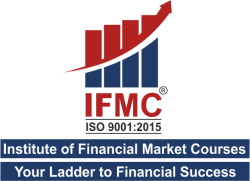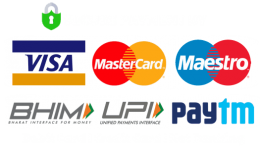
DIPLOMA IN FINANCIAL & STOCK MARKET
Stock Market Institute in Delhi & NCR
Home » Stock Market Training Classes » Diploma in Financial and Stock Market Course
Get a Diploma in financial & Stock Market & Become a Job Ready in Just 6 Months-Job Assisted Programe

Do you want to establish a solid profession? Do you want to become the world’s biggest trader? Each year thousands of people make millions of dollars with financial market. You can be among the list. Give a kick to your career and become 2020’s – ‘Warren Buffet’ or ‘Benjamin Graham’?
If you’re planning to enter the financial market as your career choice, then it’s a smart decision. The financial market is one of the highest-paying careers after 10+2. Surprisingly, it is a sensational program delivering remarkable job growth. Before digging into vast career options, let’s begin to uncover the mystery of- ‘what is financial markets course’?
A Diploma in Financial and Share Market is a 6 months job-oriented course. Join a rigorous program as we walk you through study on legitimate theoretical financial market. In 6 NSE modules, learn subject areas of financial market courses including essential aspects of the securities market. Besides, the financial market course covers important topics, practices, and trends in the subject area like financial modelling.
Financial market course is a valuable degree requires entering lucrative career in securities market. Moreover, gain specialized practical training in operation and live trading from mentors. Live market training in key principles, policies, framework, and applications. Each skill drives competent knowledge and ultimately powerful expertise. Become a master trader overnight!
Course Duration and outcome
The diploma in financial & stock market is a 7-module program. It is the most sought program after 10+2. Accomplish the course in 6 months duration, divided into 6 NSE modules you will surely enjoy. The course focuses on the study and operation of various NSE modules. All programs are theory and practical-based.
- Capital market
- Commodity market
- Currency market
- Derivatives market
- UDTS Strategy
- Technical Analysis
- Options Strategy
- Practical Classes daily with peer learning group under the mentorship of senior traders.
- Access to IFMC WATSAPP group.
Eligibility
Participants seeking answers to the question ‘what is the eligibility to the financial market course?’ Can find simplified answer in this section. The basic eligibility require to pursue a diploma in financial & stock market courses is.
- Minimum eligibility 10/ 10+12 from recognized boards or institutions.
- Candidates having a background in commerce, arts, humanities, science
- Graduates who want to expand career horizons in the financial market
- Working professionals seeking exposure to securities market
- Investors and traders looking for formal education or employment
- Age should not be more than 27 years.
Check: Investors & Traders Courses
Admission Criteria
Any candidate can pursue a diploma in financial & stock market. Participants do not appear for an entrance test. However, for a registration fee of Rs. 1700/- (non-refundable). Learn more about admission prerequisites:
- Submit self- attested 10th,12th graduation. Including other professional degree certificates and mark sheets at the time of admission.
- Also, verification is done on the basis of original documents. Failing to which admission application is rejected.
- 95% attendance is a must during the program in each module opted by the student.
- Faculty and centre head remarks /recommendation is considered during the final assessment
- Your certification depends on your Attendance, class assessment, projects, internal exams, NSE exams, Practical classes, Projects and Viva
- The decision of the Center in Charge and centre Head will be final.
Why Choose (Diploma in Financial & Stock Market) DFSM Course From IFMC?
- Students from 150+ countries infused from rich culture diversity
- Team of technical analyst and research analyst as 25+ years experience faculty
- Access to world-class trading lab to practice live market
- Opportunity to network with industry leaders during workshop training like SEBI, Reliance Capital
- Consistent online and offline NSE mock test for constructive feedback
- Diploma in the financial market course fee is very affordable as compared to other full-time courses.
- Hands-on learning with more than 25+ trading software
Job Opportunities and Prospects
DFSM is highly job oriented course providing opportunities in the stock exchange. A career in financial and stock market offers immense growth as an increase in skill demand in the upcoming sector. Job opportunities after financial market course beings right after completing the program. After completing the course you can apply in organizations like
- Financial institutions as financial advisor
- Investment bank as a relationship manager or stock analyst
- Stock broking as broker or sub broker
- Hedge funds as a fund manager, equity trader, research analyst
- Mutual funds as a wealth manager, customer acquisition, and portfolio manager
- KPOs as research analyst, equity research, or share market trader
- Depositories as investment management and operations managers
- Facility company as asset management
Certifications
- 3 CERTIFICATES OF NISM MODULES
- 3 CERTIFICATES OF NCFM MODULES
- IFMC Certification DIPLOMA IN FINANCIAL & STOCK MARKET
- UDTS certification by IFMC
*NCFM and NISM Certificates are subjected to appearance for the exam at the NSE Center. You get 100% preparation at the branch.
Course Fee
- Registration Fees – Rs 1700/-
- Program Fee – Rs 60,000/-
- Program Duration 6 MONTHS
- Plus GST
Note: Examination fee of NSE & SEBI certification is extra as given
Pay Full or Partial Course Fees
DETAIL CURRICULUM
Module 1: Capital market & its operation (NCFM Certification Prep)
- Basic knowledge of the capital market (Primary Market & secondary Market)
- Major Market Participants
- Major exchanges and indices
- Legal Framework and Regulations
- Trading and Trading Membership
- Clearing and Settlement Process
- Fundamental Valuation concepts Glimpse of various trading software (ODIN, NEAT, NOW) Practical training of market operations
- Online Mock test (500 Question & answer test series) of NCFM Capital market module
Module 2: Derivatives Market & its Operations ( NISM Certification Prep)
- Introduction to Derivatives, Type of derivative contracts
- Understanding of future, forward, option and SWAP
- Future contracts, Mechanism & pricing of Forwarding contracts
- Understanding of Options and it’s (call & put)
- Trading, Clearing, and Settlement, Risk Management in Derivatives
- Regulatory Framework
- Accounting of Derivatives
- Online Mock test (1000 Question & answer test series) of NISM Derivative market module
Module 3: Commodity Market (NISM Certification Prep)
- Understanding Commodity Market.
- International Commodity Vs Domestic Commodity
- Commodity Futures, Options, Hedging
- Clearing and setting elements, Accounting & Tax
Module 4: Currency Market (NISM Certification Prep)
- Currency Derivative and its History
- Forward, Future and Options of currency derivative
- Trading, clearing, settlement & Risk Management of currency futures
- Different Strategy Use for Currency Derivative Trading
- Online Mock test (800 Question & answer test series) of NISM series1
Module 5: Technical Analysis and its Application (NCFM Certification Prep)
Introduction to Technical Analysis
- What is a technical analysis?
- The basis of technical analysis
- Difference between technical vs fundamental analysis
Type of Charts
- Introduction to chart
- The various types of price charts
- Line chart
- Bar chart
- Candlestick chart
- Kagi chart
- Point & Figure chart
- Renko chart
- Three Line Break chart
Trend lines
- What is the purpose of drawing trend lines?
- How to plot trend lines
Candlestick study
One candlestick pattern
- Doji
- Hammer / Hanging Man
- Inverted Hammer / Shooting Star
- Spinning Top
- Marubozu
Double candlestick pattern
- Bullish /Bearish Engulf
- Bullish /Bearish Harami
- Piercing pattern /Dark cloud cover
- Tweezer Top & Bottom
Triple candlestick pattern
- Morning star /Evening star
- Three white shoulders / Three black crows
- Abandoned body (Bullish & Bearish)
- Tasuki Gap (Bullish & Bearish)
Five candlestick Pattern
- Rising three methods & falling three methods
Support & Resistance
- What is Support?
- What is Resistance?
- Change of support to resistance and vice versa
Charts patterns and their study
Four stages:
- Accumulation
- Markup
- Distribution
- Panic liquidation
Chart patterns:
- Head & Shoulder
- Inverted Head & Shoulder
- Double top/bottom
- Flag & Pennant
- Symmetrical, Ascending, Descending Triangles
- Wedge Patterns
- Rounding top/bottom
- Cup & Handle
- Rectangles Bullish / Bearish
- Triple top/bottom
Gaps & Gaps Analysis
Types of Gaps:
- Common gap
- Breakaway gap
- Runaway gap
- Exhaustion gap
- island cluster
Oscillators & indicators
What does a technical indicator offer?
Why use indicators?
Types of indicators:
- Leading indicator
- Lagging indicator
Moving Averages
- Simple moving average
- Exponential moving average
- How to trade on moving averages
MACD
- what is the MACD and how is it calculated?
- How to trade on MACD
RSI
- What is momentum?
- Calculation of the RSI
- Divergence
- How to trade on RSI
On Balance Volume
- Overview
- Calculation of On Balance Volume
- How to trade on On Balance Volume
Stochastic
- Overview
- Construction
- How to trade on stochastic
William %R
- Overview
- Signals
- How to trade on William %R
Bollinger Bands
- Few rules for beginners
- How to trade on Bollinger bands
- How to use multiple indicators
Money Flow Index
- Overview
- How to trade on the Money Flow Index
Trading strategy
The Dow Theory
- Background
- The principal rule of the Dow Theory
Elliot Waves theory
- Elliot wave basics
- How to trade on Elliot waves
Fibonacci sequence
- How to trade on a Fibonacci retracement
- How to trade on the Fibonacci extension
Trading psychology and how to manage the risk
Module 6: Option Strategy (NCFM Certification Preparation)
INTRODUCTION TO OPTIONS
- Option Terminology
- Options Payoffs
- Payoff profile of buyer of asset: Long asset
- Payoff profile for the seller of asset: Short asset
- Payoff profile for buyers of call options: Long call
- Payoff profile for the writer (seller) of call options: Short call
- Payoff profile for buyers of put options: Long put
- Payoff profile for the writer (seller) of put options: Short put
STRATEGIES
- Long Call
- Short Call
- Synthetic Long Call
- Long Put
- Short Put
- Covered Call
- Long Combo
- Protective Call
- Covered Put
- Long Straddle
- Short Straddle
- Long Strangle
- Short Strangle
- Collar
- Bull Call Spread Strategy
- Bull Put Spread Strategy
- Bear Call Spread Strategy
- Bear Put Spread Strategy
- Long Call Butterfly
- Short Call Butterfly
- Long Call Condor
- Short Call Condor
- Ratios, Volatility
Module 7 -UDTS STRATEGIES
Who Should Do Diploma in Financial & Stock Market Course?
- MBA & BBA/CA/CS/CPT Students
- Anyone who wants the job
- 10+2, BA. B.com. B.Sc. Pursuing Students
- Those who want to pursue the career in financial services
Career Opportunity
After completing Diploma in Financial & Stock Market Course certification course one can pursue his/her career in Indian and International broking houses, Banks, Asset Management Company, Hedge funds, PE funds, NBFC, KPO’s and credit rating Agency on various positions and in different departments.
You can become EQUITY ANALYST, RESEARCH ANALYST, STOCK ANALYST, ABM, BRANCH MANAGER and you become fit for various other posts in various other verticals depending on your overall Qualifications.
Admission Criteria and Eligibility:
- The candidate should Minimum 12th (Senior Secondary) pass from any reorganization Board/institutions. We always recommend the candidate should pass at least bachelor degree so that it will be the bit easier to provide placements. Graduate students get job placement on the direct payroll in big companies, and 12th students will get placement in small companies or in sub-brokers office.
- *placement guarantee refers to (After getting NCFM and NISM Certification of all 10 modules covered in adv. diploma course).
- All original documents-10th,12th graduation, other professional degree certification and mark sheets must be submitted as a self-attested copy/copies at the branch at the time of admission and originals must be shown to the center In Charge, failing which admission may be cancelled.
- 95% attendence is must during the programme in each module opted by the student.
- Remarks /Recommendation of faculty and center Head will be taken in the record after each class.
- Your certification depends on your Attendance, class assessment, projects, internal exams, NSE exams, Practical classes, Projects and Viva.
- The decision of Center in Charge and center Head will be final.
Query Us















